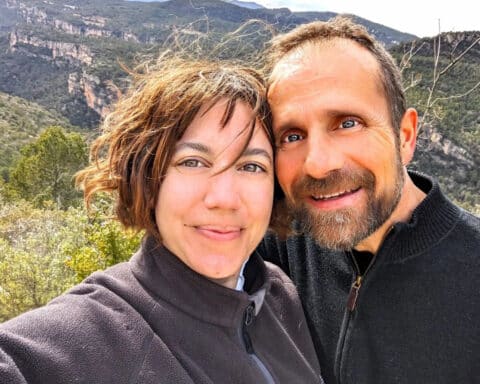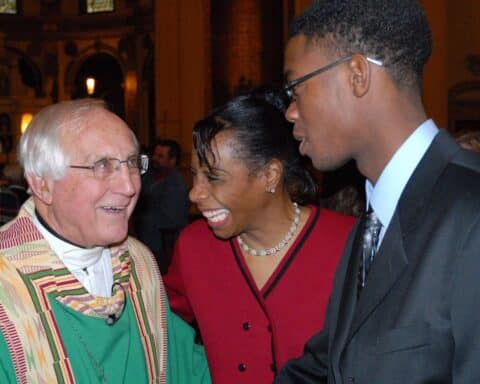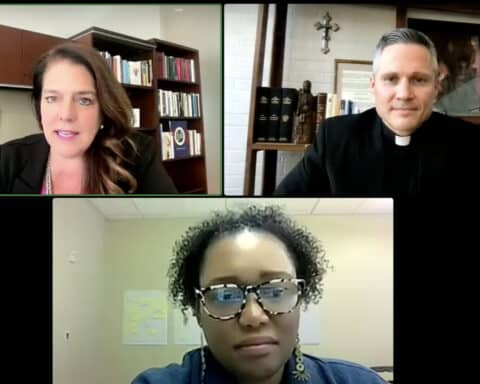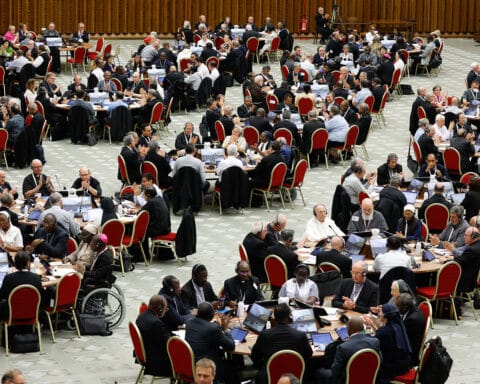In their new pastoral letter on racism, the Catholic bishops in the United States seek to acknowledge the reality of racism and the Church’s complicity in racial prejudice while calling on Catholics to come together and find solutions.
The letter, entitled “Open Wide Our Hearts: The Enduring Call to Love, A Pastoral Letter Against Racism,” is forthright in saying that racism, among individuals and within institutions, is still a problem that continues to victimize racial and ethnic minorities.
“It seems like we’re at a point in history where people can’t be on the fence as it relates to race anymore. People really need to make a solid declaration and determine if they’re going to be part of the problem or part of the solution,” said Danielle Brown, who staffs the U.S. Catholic Conference of Catholic Bishops’ Ad Hoc Committee Against Racism.
Brown told Our Sunday Visitor that while the pastoral letter acknowledges the progress that American society has made over the last several decades to combat racism, it also points to troubling signs in recent years that reveal the persistent and ever-evolving nature of prejudice.
The bishops formed the Ad Hoc Committee Against Racism last summer amid rising racial tensions that included several violent street confrontations across the country, most notably in Charlottesville, Virginia, where white supremacists marched in the streets, clashed with counter-protesters and killed one person.
“In some areas, we’ve lost ground when it comes to treating each other equally and making people of color truly feel like they belong, like they’re welcome in the United States,” Brown said.
The bishops sign off
On Nov. 14, during their November general meeting, the U.S. Conference of Catholic Bishops overwhelmingly approved — by a 241-3 vote with one abstention — the new pastoral letter that takes a long, hard look at the evil of racism.
“The entire body of bishops felt the need to address the topic of racism, once again, after witnessing the deterioration of the public discourse, and episodes of violence and animosity with racial and xenophobic overtones, that have re-emerged in American society in the last few years,” said Bishop Shelton J. Fabre of Houma-Thibodaux, Louisiana.
Bishop Fabre, the chairman of the U.S. Bishops’ Ad Hoc Committee Against Racism who also serves as chairman of the Sub-committee on African-American Affairs within the Cultural Diversity Committee, said in a prepared statement that pastoral letters from the full body of bishops are “rare, few and far between.”
| A History of Racism Statements |
|---|
|
“Open Wide Our Hearts” is only the latest letter from the U.S. bishops on racism. The first of these, issued by predecessor organizations to the USCCB, dates back to 1943. Subsequent statements have included: – “Discrimination and Christian Conscience” (1958) Full text of “Open Wide Our Hearts” can be found online: |
“But at key moments in history, the bishops have come together for important pronouncements, paying attention to a particular issue and with the intention of offering a Christian response, full of hope, to the problems of our time. This is such a time,” Bishop Fabre said.
The pastoral letter emphasizes that every human being, regardless of skin color or ethnicity, is made in God’s image, and that racism is a serious moral and theological problem, a sin, that manifests itself institutionally, systematically and between individuals.
“Racism occurs because a person ignores the fundamental truth that, because all humans share a common origin, they are all brothers and sisters, all equally made in the image of God. When this truth is ignored, the consequence is prejudice and fear of the other, and — all too often — hatred,” the bishops wrote.
The letter further says that only a deep conversion of heart can compel change and reform in society and its institutions. For that conversion to happen, the bishops say everyone needs to confront the root causes of racism and the injustices it produces.
Applying the teaching
“My hope is that the faithful and the folks who are acknowledging the pain, the hurt and polarization that we’re living in right now as a society will see (the pastoral letter) as a tool to address some of that,” said Ralph McCloud, the director of the USCCB’s Catholic Campaign for Human Development.
McCloud, a past president of the National Association of Black Catholic Administrators, told OSV that the letter “moves the needle” for the Church in addressing the reality and pervasiveness of racism in society. But he said the letter will only be effective if Catholics at the parish and diocesan levels take seriously its call to action.
“It’s good only insofar as how it’s implemented,” McCloud said.
The new pastoral letter on racism follows up on several earlier documents from the U.S. bishops (see sidebar), who in 1979 approved “Brothers and Sisters to Us: A Pastoral Letter on Racism in Our Day.” That earlier letter declared racism to be “a sin that divides the human family.”
“That was pretty powerful,” said Darren Davis, a political science professor at the University of Notre Dame.
Davis — the co-author of a 2011 report, sponsored by Notre Dame and the National Black Catholic Congress, that offered insights into the spiritual needs of black Catholics — told OSV that compared to the bishops’ previous statements on racism, the new letter is “bold and assertive.”
“As an African-American Catholic, I am proud of the effort,” said Davis, who commended the bishops for distinguishing individual racism from institutional racism and identifying recent specific examples of how racism manifests itself in America, such as the water crisis in Flint, Michigan, the disproportionate rate of blacks who are incarcerated and the killing of unarmed black men by police officers.
Catholic identity
Brown, of USCCB, said she believes the new letter will have a bigger impact than previous documents because her committee has a mandate to implement the letter and continue hosting listening sessions, fostering dialogue in the Church and advocating for public policies related to racism, among other responsibilities.
“I think the commitment to listening sessions that the bishops have made really speaks volumes,” Brown said. “They really want to give time and due attention to this letter, and I think they quite literally have put their money where their mouth is this time.”
In late September, Bishop Fabre discussed the then-upcoming pastoral letter with a Catholic audience in Providence, Rhode Island, where he pointed out that the nation’s Catholic community had not shown the same determination to stamp out racism as it has other issues, such as abortion.
Like what you’re reading? Subscribe now in print or digital.
“Even in our own beloved Church, standing against racism is not considered an essential character of Catholic identity,” he said.
Brown added that one participant during a listening session sponsored by her committee said it would be great if the Catholic Church in the United States were associated with having a strong anti-racism ethos.
She said, “I think this move is really an opportunity for bishops in their own dioceses to work to make anti-racism synonymous with being Catholic.”





